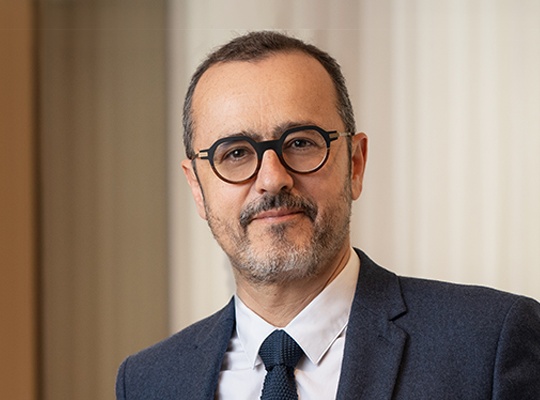Life Sciences: What's new in France ? A legal update on recent developments in the life sciences sector
Read more about the recent developments in the life sciences sector in France.
Content:
- The proposed PACTE law and collaboration between public research and the private sector
- French government aims to boost the use of biosimilar
- Biotech and Medtech: What is new about incentive mechanisms?
- Past infringement of antitrust law can legitimate exclusion from public procurement
The proposed PACTE law and collaboration between public research and the private sector
By Marie Fillon
The proposed PACTE law, which is currently being debated within the French Parliament and was approved by the Assemblée Nationale on 9 October 2018, aims to facilitate the collaboration between public research and private companies in France.
Why a new law?
The current legal framework for collaboration between public research and private sector companies stems from the French law on research and innovation dated 12 July 1999 (named Loi Allègre after a former French Minister of Education).
Pursuant to the rules set by articles L. 531-1 to L. 531-14 of the French Research Code, researchers from the public sector may, under certain conditions, either:
- create or participate in the creation of a company; or
- contribute as a scientific expert to, or invest in, an existing company; or
- be part of the management of an existing company.
However, these rules have not achieved the expected results.
Figures published by the French government reveal that since 2000:
- Only 231 researchers from the public sector were authorized to create a private company (out of 258 applications);
- Only 1144 researchers from the public sector were allowed to contribute as scientific experts to an existing private company (out of 1255 applications), and
- Only 51 researchers from the public sector were authorized to be part of the management of a private company (out of 58 applications).
Therefore, each year only 0.01% approximately of researchers from the public sector actually join or apply to join the private sector.
Moreover, only 0.8% of the researchers recruited by private companies are coming from the public sector.
Although these figures do not fully reflect the transfer of technology between public research and private companies, which is often implemented through license agreements, these results fail to reach the government’s expectations.
In order to address this, the PACTE law modifies the French Research Code in order to promote collaboration between public research and the private sector, in particular by simplifying the authorization process for the researcher and improving the researcher’s involvement in the private company (while of course respecting the appropriate ethics rules and avoiding conflicts of interest).
What will change regarding the creation of a private company?
With the proposed PACTE law, the authorization provided to a researcher from the public sector to create, or to participate in, the creation of a private company will no longer be granted by a deontology committee, but by the public research institution to which the researcher belongs.
According to the authors of the proposed PACTE law, involvement of the researcher’s public research institution should, on the one hand, simplify the authorization process for the researcher and, on the other hand, allow the public research institution to maintain control of its human resources and be more responsible within the collaboration mechanism.
In addition, a researcher from the public sector creating or participating in the creation of a private company would, under the current legislation, cease any activity within their public research institution (with the exception of teaching activities). Under the contemplated rules, they would be able to, for a limited period of time, keep their functions and activities within the public research institution, allowing them to be fully involved both in research work within the laboratory and in the development of the company.
What will change regarding contribution as a scientific expert to an existing company?
The current legal framework provides that contribution as a scientific expert to an existing company shall be compatible with "the full exercise by the civil servant of their public employment." The case law of the deontology committee therefore sets a limit to the time a civil servant may allocate to their contribution as scientific expert to an existing company; a civil servant cannot spend more than 20% of their working time on scientific contribution to a private company.
Under the proposed PACTE law, the public research institution, researcher and company can negotiate and set the amount of time the researcher may allocate to scientific contribution to the company. When collaboration with the company is not compatible with full-time activity within the public research institution, the researcher can be granted a temporary assignment to the company.
What will change regarding the share ownership of a private company?
Regarding both collaboration mechanisms described above, the current legal framework provides that in the event that an authorization is terminated or is not renewed (and the researcher is, as the case may be, reintegrated within the public research institution), the researcher shall waive any share ownership in the company they created or participated in the creation of, or in the company to which they contributed as a scientific expert, unless otherwise expressly authorized (within the limit of 49% of the share capital).
Under the proposed PACTE law, the researcher may retain their share ownership of the company without any express authorization (but still within the limit of 49% of the share capital).
Perspective
The proposed PACTE law does not completely revolutionize the collaboration between public research and the private sector, and there are aspects which could be improved – for example, the limited period of time during which a researcher from the public sector is allowed to participate in a private company, which may prove insufficient in some industries. However, the proposed law has the potential to make a positive impact on existing practices.
French government aims to boost the use of biosimilars
By Sophie Pelé and Sophie Mitouard
Although in 2013 France was the first European country to allow biosimilars substitution (albeit under certain conditions), in the absence of an implementing decree detailing the conditions for substitution and what information should be delivered to physicians, the new rules have not had their expected effect.
Given the difficulty of drafting and passing the decree, the government is increasing alternative routes to foster the use of biosimilars. The issue has become a priority following the recent launch of a new generation of biosimilars. Whereas, over the last couple of years, biosimilars were used in hospitals only, they have now reached therapeutic areas where treatments are prescribed in hospitals but dispensed by community pharmacies. This significantly increases the volumes concerned and raises the question of substitution in community pharmacies, whereas dispensation in hospitals focusses on interchangeability, in the hands of physicians prescribing the drug.
I. Uncertainties around enforceability of substitution
Article L. 5125-23-3 of the public health code lists four conditions under which “the pharmacist can dispense, by substitution to the biological medicine prescribed, a similar biological medicine”: (i) substitution has not been excluded by the prescriber, (ii) the medicine substituted is registered in the repertoire listing similar biologic groups, (iii) it is available for initiation of treatment or for consistency purposes and (iv) finally it should not create additional costs for the social security system. Nevertheless, the article also refers to a decree to further detail the conditions for the substitution and the information delivered to physicians.
The decree was expected by June 2015. Some stakeholders argue that after four years, biosimilar substitution should be directly applicable as the main conditions are already known. However, the Legislator has since twice amended article L. 5125-23-3, in 2016 and in 2018, without removing the reference to the decree.
Moreover, several public health authorities, including the National Agency for Medicines and Health Products Safety (l’Agence nationale de sécurité du médicament et des produits de santé or ANSM) and the French Health Authority (HAS) have positioned themselves against substitution without a decree: “the substitution by the pharmacist, in the context of the supply of a biological medicine by another mentioned on the list of biosimilar medicines elaborated by the ANSM, is not possible at this stage, in the absence of an implementing decree.”
II. Promotion of biosimilars by incentive schemes
Pending a decree for the effective implementation of substitution, and to address situations where substitution would in any case not apply because the products were dispensed only in hospitals, the French government has nonetheless found ways to foster the use of biosimilars with the view to reduce public spending.
Firstly, every hospital must enter into a contract with its local health authority (ARS) that sets forth several goals (CAQES), notably to purchase and prescribe biosimilars. The template agreement also provides for a commitment to reach a minimum level of prescription for biosimilars prescribed in hospital but delivered in community pharmacies. An instruction by the Minister of Health and the Minister of Budget dated 3 August 2017 fixes this rate at 70%.
Furthermore, within the parameters of experimentation allowed by the Social Security Financing Bill for 2018, a guideline dated 19 February 2018 and an order of 3 August 2018 put in place two types of financial incentives for hospitals which reach a certain level of prescription of biosimilars dispensed within their district. Each hospital which has entered into a CAQES will receive a markup corresponding to 20% of the price difference between the originator and the biosimilar for the proportion of its total prescription using biosimilars (whether in hospitals or in community pharmacies). The same mechanism also applies at the level of therapeutic units for 45 selected hospitals, in order to assess whether this has an influence on the level of prescription of biosimilars. For the moment, this only concerns etanercept and insulin glargine, but the scope may be broadened at any time.
Finally, Article 66 of the Social Security Financing Bill for 2019 provides for a new scheme granting hospitals financial incentives for the prescription of biosimilars dispensed in community pharmacies.
In the context of cost reduction and a focus on financing innovation, the Government’s decision to encourage the use of biosimilars is not contestable as such. However, implementation through multiple orders and guidelines makes the scheme opaque and difficult to understand.
Moreover, the mechanisms put in place foster the use of biosimilars solely because they pertain to this category of products, regardless of their price and rebates. As such, it might lead to distortion of competition with regards to originators who are also able to grant rebates.
This results in a real pressure on hospitals and physicians to prescribe biosimilars, which conflicts with the freedom to prescribe inherent to the art of medicine, and the financial independence that physicians must have, especially in regards to prescriptions.
It is evident that when it comes to biosimilars, physicians are at the heart of the system. Whereas substitution has proven efficient for generics, biosimilars might not go beyond interchangeability.
Biotech and Medtech: What is new about incentive mechanisms?
By Anne-Charlotte Rivière and Louis Taslé d’Héliand
The success of biotech and medtech companies relies on numerous factors, and notably on their capacity to attract high profile employees, independent board members and key opinion leaders. Collaborating with the right parties can considerably increase the credibility of a company or project by scientifically validating its drug candidates and other products, but also by providing reassurance on the ability of the team in place to make the project a success.
However, these high profile individuals are relatively rare compared to the number of biotech and medtech companies operating in an industry with worldwide competition. In addition, for employees, leaving big pharma or medtech companies for a risky entrepreneurial project often means leaving stability and comfort for a “pay cut.”
In this respect, incentives such as profit-sharing mechanisms allow biotech and medtech companies to offer potential significant gains in the case of a liquidity event (such as a sale or IPO). They also enable the interests of all parties involved (investors, founders, employees, board members and KOLs) to align toward increasing the equity value of the companies.
The French government has clearly indicated that it supports innovation and will take action in favor of startups. With respect to incentives, we have noticed some movement even though we still see a need for additional measures in the future.
Whereas stock options are disregarded by biotech and medtech companies (except for foreign employees) as they are expensive for the company and not tax efficient for beneficiaries, founders’ warrants (bons de souscription de parts de créateur d’entreprise or BSPCE) and free shares (attribution gratuite d’actions) are very common.
Recent changes in the legislation applicable to free shares and in the tax regime of capital gain have made incentive mechanisms much more attractive.
Free Shares
For a long time, free shares were seen as inflexible and expensive.
Vesting conditions on free shares were subject to legal constraints, providing that they could not be acquired before the end of a two-year acquisition period and be transferred before an additional two-year lock-up period. Where four years may have been compatible with the liquidity target at the beginning of a project, it may not have been the case at a later stage, and no vesting acceleration was legally possible. Since 2015, the acquisition and lock-up periods have been reduced to a global two-year period, which makes free shares more flexible.
In addition, the allocation of free shares was triggering, at the date of the allocation, a social contribution amounting to 30% of the value of the shares. Consequently, companies were liable for a significant amount of social contribution even though employees might have left their position before the end of the acquisition period and the free shares might have lapsed. Since 2015, social contribution is now due at the end of the acquisition period (i.e. when the free shares are vested) and reduced to 20% (with some limited deduction in favor of SMEs).
Even though this was seen as a major move in support of startups, the payment of this contribution nevertheless creates a significant cash issue in companies with zero or little revenue. The amount of the contribution also cannot be properly anticipated, as it remains uncertain since it is based on the value of the share at the date of acquisition, (i.e. at least one year after the grant, in high growth companies where the valuation can grow very quickly).
Free shares could be much more attractive if their legal regime provided for flexibility in term of vesting acceleration and if the social contribution regime applicable to SMEs was adjusted to take into account their financial and cash capacities (e.g. reduced rate or contribution calculated on the value of the shares at the time of the allocation with a deferred payment).
Founders’ Warrants (BSPCE)
Founders’ warrants are very often seen as the most appropriate incentive mechanism for biotech and medtech companies as they are tax efficient for the beneficiaries, free for the companies and very flexible in terms of vesting and allocation conditions. Even if the tax regime on capital gains and founders’ warrants has been aligned to the 30% “flat tax,” founders’ warrants remain attractive.
However, not every company or person contributing to biotech and medtech companies is eligible for founders’ warrants.
SMEs need to comply with several conditions in order to be eligible for founders’ warrants. In particular, until recently, companies resulting from the acquisition of a preexisting business and/or any restructuring were not eligible. This condition has been softened and nowadays these companies remain eligible if the initial companies meet all other eligibility conditions.
One condition remains an issue for biotech and medtech companies. Only companies where 25% of their share capital is held since their inception by natural persons (or by legal persons where 75% of the share capital is directly held by natural persons) are eligible for founders’ warrants. The calculation method neutralizes French investment funds and foreign “equivalent structures,” but the French tax administration does not recognize US limited partnerships and most foreign funds as “equivalent structures.” Consequently, French biotech and medtech companies which have recourse to international funding often lose their eligibility for founders’ warrants. Clarifying and extending the conditions to all investment funds, regardless of their structure, would avoid complex issues for these companies.
Although the list of potential beneficiaries of founders’ warrants was extended to employees and executive officers of subsidiaries, non-executive officers are still not eligible. Parliament is currently discussing extending founders’ warrants to board members, supervisory board and members of equivalent corporate bodies of simplified stock companies (sociétés par actions simplifiées). This would be an important step forward as it would enable French biotech and medtech companies to remunerate their independent board members more easily and within a secured tax mechanism.
If founders’ warrants remain the most attractive incentive mechanism for biotech and medtech companies, they would benefit from legal amendments extending their eligibility and taking into account their ecosystem – for example, the necessity to hire and incentivize independent board members, and the need for larger and more international fund raising.
Past infringement of antitrust law can legitimate exclusion from public procurement
By Laurence Bary and Sophie Mitouard
The preliminary ruling issued by the ECJ on October 24, 2018, (Case C-124/17, Vossloh Laeis GmbH v Stadtwerke München GmbH) specifies the conditions for excluding suppliers from public tenders based on past infringements of competition law, and presents significant consequences in sectors such as life sciences, where market players are highly dependent on hospital public tenders.
I. Ground for exclusion from public procurement
In addition to risking a fine from a competition authority of up to 10% of their worldwide turnover in the case of infringement of competition law, economic operators also face the risk of being banned from public tender. Since public procurement may represent a significant part of the turnover of companies active in the health sector, it is important to detail the conditions of a possible exclusion based on competition law infringement.
Article 57, paragraph 4(d) of Directive 2014/24/UE on public procurement gives Member States the possibility of excluding from a public procurement procedure candidates who have infringed antitrust law. The exclusion is limited to infringements of Article 101, paragraph 1 of the Treaty on the Functioning of the European Union (TFEU) which prohibits anticompetitive agreements. It aims to protect public purchasers from being victims of such collusion.
In France, these grounds for exclusion have been inserted into Article 48 of the Ordinance related to public contracts (no. 2015-899). In practice, each candidate participating in a public tender must provide a statement guaranteeing that it is not subject to any ground for exclusion (as listed in Article 40 of the Decree no. 2016-361 on public contracts). However, the operator is also given the chance to prove that, despite a past infringement of competition law, it has taken the necessary measures to prevent a reoccurrence of such behavior in the future, thus proving its reliability.
II. Operators’ obligation to show good faith
A recent case illustrates how this exclusion is applied in practice by public bodies. Vossloh Laeis, a manufacturer of railway materials, was fined by the German Federal Cartel Office (FCO) for its participation in a cartel in 2011. Five years later, the company submitted a quote for the provision of railway material in a public tender organized by Stadtwerke München, which incidentally had been one of the victims of the cartel.
Based on the provisions of the Directive, the public purchaser raised its doubts to Vossloh Laeis regarding its reliability. The candidate responded by presenting the restructuration measures it had adopted further to the sanction imposed by the FCO. As the case had been settled, Stadtwerke München also requested a copy of the infringement decision itself, which Vossloh Laeis refused to disclose to prevent it from being used in a follow-on action. The company considered that its collaboration with the FCO was a sufficient guarantee of its goodwill for the public purchaser. However, Stadtwerke München ultimately excluded Vossloh Laeis from the tender.
The public purchaser’s requirement to see the FCO’s infringement decision was referred to the ECJ by the Public Procurement Board for Southern Bavaria. The question was whether the document was necessary to allow the public purchaser to assess the candidate’s capacity to perform the contract at stake, or if the existence of the leniency proceedings before the FCO was enough proof of the candidate’s good faith.
In its ruling, the ECJ considered that the public purchaser “must be able to ask an economic operator which has been held responsible for a breach of competition law to provide the decision of the competition authority concerning it” and specified that “the fact that the transmission of such a document might facilitate the introduction of a civil liability action by the contracting authority against that economic operator is not such as to call that finding into question.”
The ruling has therefore had a significant impact for economic operators that may have infringed competition law and benefited from a leniency program. Those willing to participate in public tenders will undoubtedly be placed in a difficult position; on the one hand, should they want to participate, they may result in helping a victim of their past infringement build a case against them. On the other hand, should they refuse to provide the requested document and offer other pieces of evidence in support of their reliability, they may be excluded from the public tender altogether.





